Filter by
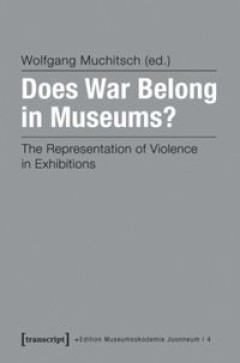
Does War Belong in Museums?: The Representation of Violence in Exhibitions
Presentations of war and violence in museums generally oscillate between the fascination of terror and its instruments and the didactic urge to explain violence and, by analysing it, make it easier to handle and prevent. The museums concerned also have to face up to these basic issues about the social and institutional handling of war and violence. Does war really belong in museums? And if it d…
- Edition
- -
- ISBN/ISSN
- 9783837623062
- Collation
- -
- Series Title
- -
- Call Number
- 708 WAR

"The Sting of Death” and Other Stories
How can people in the spotlight control their self-representations when the whole world seems to be watching? The question is familiar, but not new. Julia Fawcett examines the stages, pages, and streets of eighteenth-century London as England's first modern celebrities performed their own strange and spectacular self-representations. They include the enormous wig that actor Colley Cibber donned…
- Edition
- -
- ISBN/ISSN
- 9780472902019
- Collation
- -
- Series Title
- -
- Call Number
- 808.9 SHI s
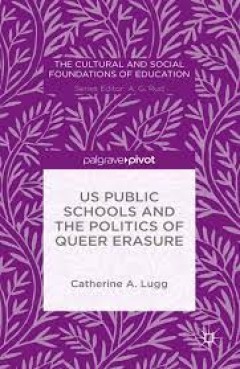
US Public Schools and the Politics of Queer Erasure
This book presents a history of queer erasure in the US public school system, from the 1920s up until today. By focusing on specific events as well as the context in which they occurred, Lugg presents a way forward in improving school policies for both queer youth and queer adults.
- Edition
- -
- ISBN/ISSN
- 978-1-137-53526-9
- Collation
- -
- Series Title
- -
- Call Number
- -
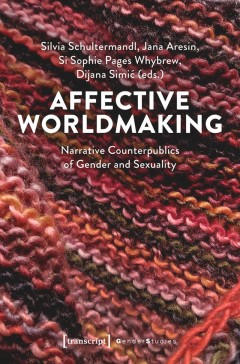
Affective Worldmaking : Narrative Counterpublics of Gender and Sexuality
What makes up a public, what governs dominant discourses, and in which ways can counterpublics be created through narrative? This edited collection brings together essays on affect and narrative theory with a focus on the topics of gender and sexuality. It explores the power of narrative in literature, film, art, performance, and mass media, the construction of subjectivities of gender and sexu…
- Edition
- -
- ISBN/ISSN
- 9783839461419
- Collation
- 238 halaman
- Series Title
- Gender Studies
- Call Number
- 305 AFF
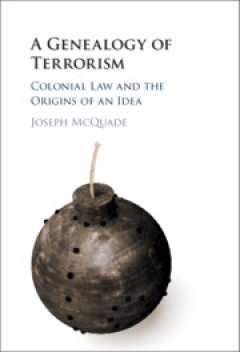
A Genealogy of Terrorism Colonial Law and the Origins of an Idea
Using India as a case study, Joseph McQuade demonstrates how the modern concept of terrorism was shaped by colonial emergency laws dating back into the nineteenth and early twentieth centuries. Beginning with the 'thugs', 'pirates', and 'fanatics' of the nineteenth century, McQuade traces the emerging and novel legal category of 'the terrorist' in early twentieth-century colonial law, ending wi…
- Edition
- -
- ISBN/ISSN
- 9781108896238
- Collation
- -
- Series Title
- -
- Call Number
- -
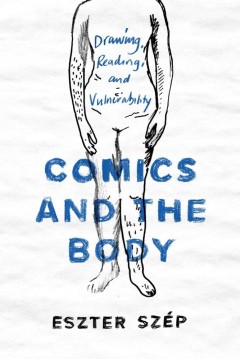
Comics and the Body : Drawing, Reading, and Vulnerability
Eszter Szép’s Comics and the Body is the first book to examine the roles of the body in both drawing and reading comics within a single framework. With an explicit emphasis on the ethical dimensions of bodily vulnerability, Szép takes her place at the forefront of scholars examining comics as embodied experiences, pushing this line of inquiry into bold new territory. Focusing on graphic aut…
- Edition
- -
- ISBN/ISSN
- 9780814214541
- Collation
- -
- Series Title
- -
- Call Number
- 741.5 Sze c
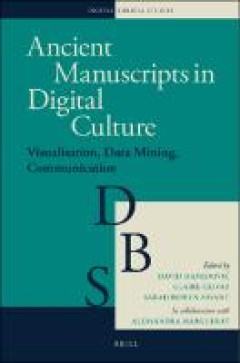
Ancient Manuscripts in Digital Culture: Visualisation, Data Mining, Communica…
Ancient Manuscripts in Digital Culture presents an overview of the digital turn in Ancient Jewish and Christian manuscripts visualisation, data mining and communication. Edited by David Hamidović, Claire Clivaz and Sarah Bowen Savant, it gathers together the contributions of seventeen scholars involved in Biblical, Early Jewish and Christian studies. The volume attests to the spreading of digi…
- Edition
- -
- ISBN/ISSN
- 9789004399297
- Collation
- -
- Series Title
- -
- Call Number
- -

Confronting Antisemitism in Modern Media, the Legal and Political Worlds
The five volumes provide a compendium of the history of and discourse about antisemitism - both as a unique cultural and religious category. Antisemitic stereotypes function as religious symbols that express and transmit a belief system of Jew-hatred, which are stored in the cultural and religious memories of the Western and Muslim worlds. This volume explores the phenomenon in Modern Media and…
- Edition
- -
- ISBN/ISSN
- 9783110671964
- Collation
- -
- Series Title
- -
- Call Number
- -

Shipwreck at Cape Flora: The Expeditions of Benjamin Leigh Smith, England's F…
Benjamin Leigh Smith discovered and named dozens of islands in the Arctic but published no account of his pioneering explorations. He refused public accolades and sent stand-ins to deliver the results of his work to scientific societies. Yet, the Royal Geographic Society's Sir Clements R. Markham referred to him as a polar explorer of the first rank. Traveling to the Arctic islands that Leigh S…
- Edition
- -
- ISBN/ISSN
- 9781552387122
- Collation
- -
- Series Title
- -
- Call Number
- -

Critical Perspectives on Cultural Memory and Heritage: Construction, Transfor…
Critical Perspectives on Cultural Memory and Heritage focuses on the importance of memory and heritage for individual and group identity, and for their sense of belonging. It aims to expose the motives and discourses related to the destruction of memory and heritage during times of war, terror, sectarian conflict and through capitalist policies. It is within these affected spheres of cultural h…
- Edition
- -
- ISBN/ISSN
- 9781787354845
- Collation
- -
- Series Title
- -
- Call Number
- -
 Computer Science, Information & General Works
Computer Science, Information & General Works  Philosophy & Psychology
Philosophy & Psychology  Religion
Religion  Social Sciences
Social Sciences  Language
Language  Pure Science
Pure Science  Applied Sciences
Applied Sciences  Art & Recreation
Art & Recreation  Literature
Literature  History & Geography
History & Geography